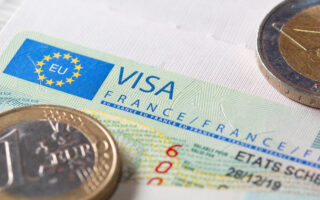Protect your property from fraud

Do you know how to safeguard your UK property from con artists while you’re living or holidaying in France?
You’re enjoying a glass of wine in Bordeaux or perhaps sunning yourself on the Riviera, and your house back home is the last thing on your mind. Perhaps it’s earning you money, as you have tenants, or you have a family member or friend keeping an eye on it while you’re abroad.
If you were to lose your house keys, you’d probably change the locks to protect your possessions, but would you know how to go about protecting your house from being fraudulently sold or mortgaged, especially if you spend all or part of your time living abroad?
Tricks and mortar
Property is usually the most valuable asset people own, it can be sold and mortgaged to raise money and can therefore be an attractive target for fraudsters. When you moved abroad did your ‘check list’ include updating your contact details with HM Land Registry (HMLR), to include an email and your address abroad? If it didn’t, it should have.
HMLR is a government agency that registers the ownership of land and property in England and Wales. It also provides advice as to how people can protect their property from fraud. Since 2009, it has ensured the integrity of the Land Register by preventing 279 fraudulent registrations with a combined property value of £133.4m.
The type of frauds HMLR see are where fraudsters steal someone’s identity and then attempt to sell or mortgage their property by pretending to be the owner. If it isn’t discovered promptly, the true property owner might find your property has been transferred or sold without their knowledge. Fixing the mess can be distressing, time-consuming and costly.
Thankfully, property fraud is quite rare, but for the unlucky victims, it can have devastating effects. Prevention is therefore better than cure.
If you live abroad your property might be more at risk if:
• It is empty
• It is rented out
• It is mortgage-free
• It isn’t registered with HMLR
_______________________________________________________
Don’t miss
Five French properties with the wow factor
Could you reduce your tax bill by moving to France?
_______________________________________________________
How can you protect yourself?
Firstly, ensure your property is registered. If you become an innocent victim of fraud and suffer a financial loss, you may be compensated. If your property isn’t registered then no compensation is payable.
Make sure your contact details are up-to-date so HMLR can reach you easily. You can have up to three addresses on the register including an email address or an address abroad. If your details are not up to date, you may not receive our letters or emails if we need to contact you.
Sign up for HMLR’s free Property Alert service. Email alerts will be sent when there is certain activity on a monitored property, for example, if someone tries to register a mortgage. You can monitor up to 10 properties and you do not have to be the registered proprietor, you could monitor your parents or grandparents house, for example. If you receive an unexpected alert, you can decide whether to seek further advice. Check out HMLR’s YouTube guide to setting up Property Alert.
If you feel you might be at risk, you can request a restriction on your property. A restriction is intended to stop activity on the property, such as a transfer or a mortgage, unless a conveyancer or solicitor confirms the application was made by you. There is no fee to homeowners who do not live at the property they wish to protect. Request a restriction.
Who to contact
If you think you may have been the victim of property fraud:
• Contact HMLR’s property fraud line on 0300 006 7030 (Monday to Friday, 8.30am to 5pm) or email [email protected].
• Contact a legal professional such as a solicitor or Citizens Advice and Action Fraud (actionfraud.police.uk).
• For more information visit www.gov.uk/propertyfraud.
Cheryl McIlroy is a counter-fraud expert at HMLR
Share to: Facebook Twitter LinkedIn Email


